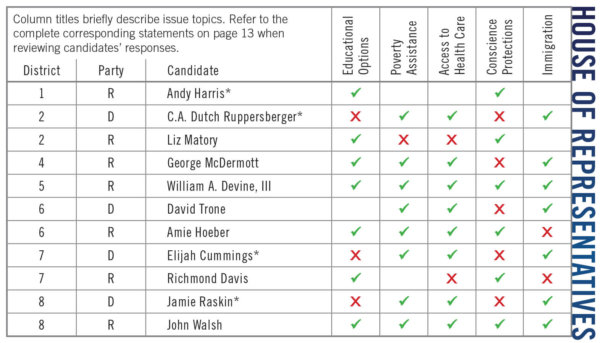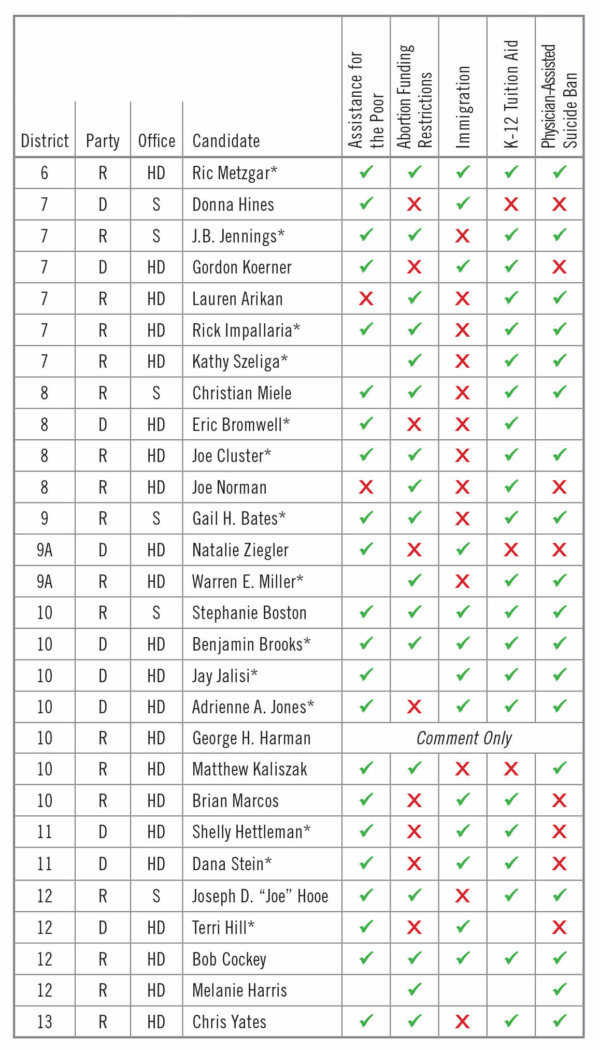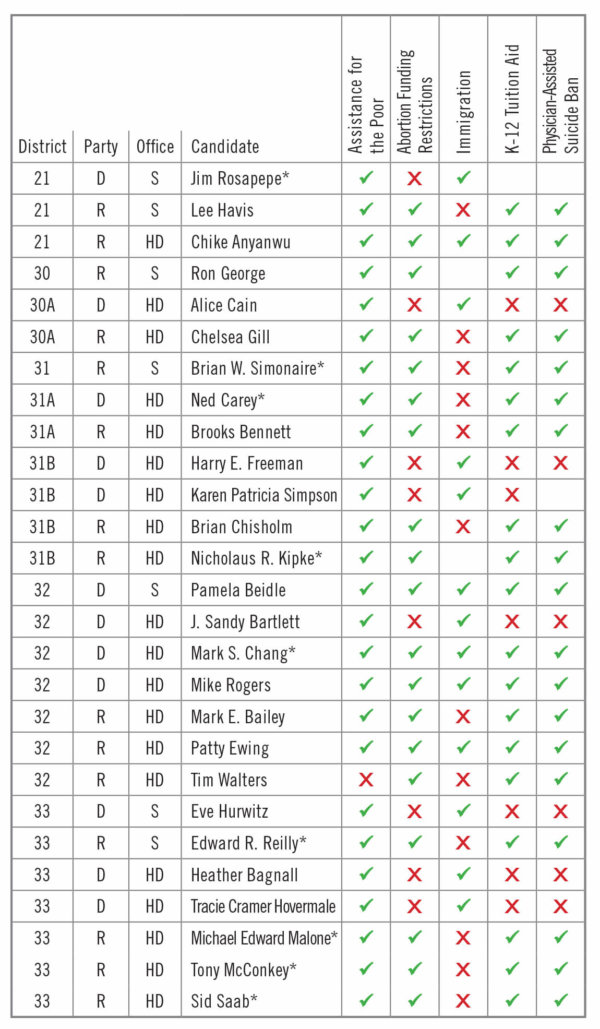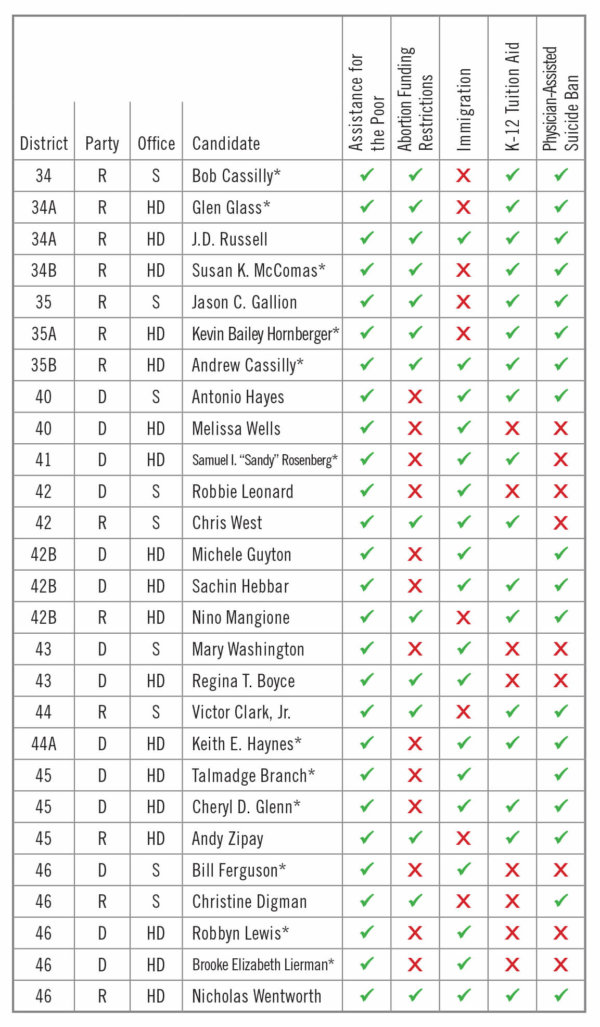About the surveys
Every election year, the Maryland Catholic Conference surveys the state’s candidates for U.S. Congress and the Maryland General Assembly on their positions regarding issues of interest to Catholics.
The responses of the Democratic and Republican candidates whose districts are in the Archdiocese of Baltimore appear on the grid below. (For the responses of candidates outside the archdiocese, click here.)
The candidates were asked to either “agree” or “disagree” with a list of issue statements. The ✓ indicates the candidate agrees with the statement. The ✕ indicates the candidate disagrees with the statement. A blank response means the candidate did not choose a position on that issue. Candidates were given the opportunity to provide a brief statement at the end of the survey on why Maryland Catholics should vote for them. Those comments are available on the Maryland Catholic Conference website: mdcatholic.org/elections.
Each candidate received the survey by email. Non-responding candidates were also contacted at least once by phone, if a number was provided to the Maryland State Board of Elections. Third-party, unaffiliated and write-in candidates were not surveyed for the general election. Only candidates who responded to the survey are included.
The Maryland Catholic Conference does not endorse or oppose any candidate under any circumstance, and no inference of endorsement or opposition should be concluded as a result of the information provided here.
To find your district, click here.







